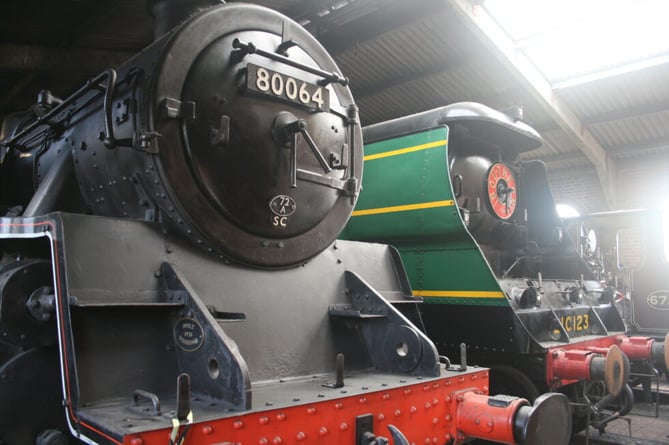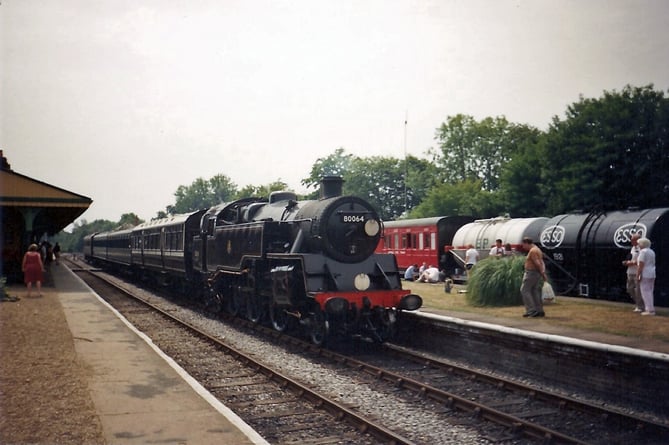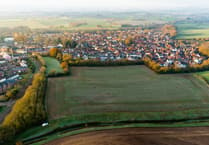AN early Christmas present has been given to the West Somerset Railway (WSR) in the form of a steam locomotive.
The owners of BR Standard Class 4MT locomotive 80064 have given the engine to the West Somerset Railway Association (WSRA), a volunteer group which supports Britain’s longest standard gauge heritage railway.
Locomotive 80064, built in 1958, is a large and powerful tank engine considered one of the best designs of the early British Railways era.
WSRA trustees chairman Geoff Garfield said: “It is our intention to restore 80064 as soon as possible, so that it can see regular use as part of the home fleet of WSR locomotives.
“We see it as ideal for that purpose, well able to cope with the challenging gradients and heavy loadings on our line.

“We have been working for some time on plans to restore the locomotive.
“Our current restoration project, WSRA-owned 4561, is well under way.
“We are planning to restore 80064 in tandem.
“We are currently finalising our plans and will share more details as soon as we can.
“We are very grateful to Colin Turner, Martin Nichols, and the other members of the 80064 group for this opportunity and look forward to welcoming them into our railway family.”
WSR chairman Jonathan Jones-Pratt said: “We are delighted to receive 80064 onto WSR metals, having operated a standard tank on the WSR before.
“It meets our needs very well and we are very thankful to the owning group for choosing the WSR to take the engine’s future forward.
“The company is working hard with the WSRA to deliver the restoration plan which will be completed at Williton.
“This is a landmark moment for the railway, we are really excited to deliver this project.
“This engine will form part of the WSR home fleet and is more than capable of managing our loads and needs.
“We are all very excited at the prospect of seeing this engine operating in the future.”
The WSRA, a registered charity, supports the heritage of the line, and currently owns steam locomotives and rolling stock.
The 80064 finished its British Railways days in the Westcountry working out of Barrow Road, Bristol, and earlier spent much of its time in Kent before moving to work on the former Southern Region lines out of Exmouth Junction.




